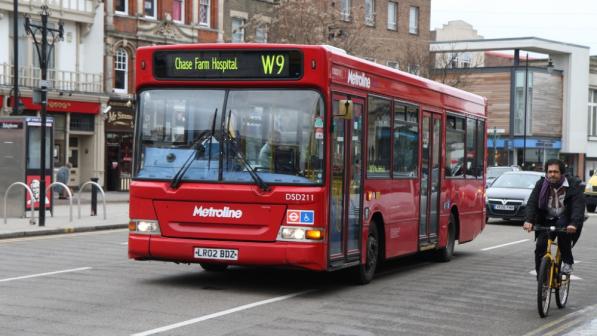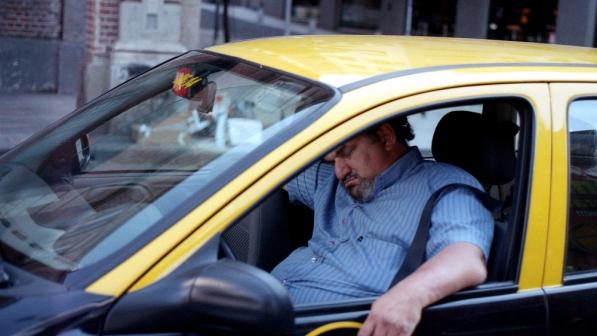HGV operator loses licence after cyclists' deaths

Rogue operators licence finally revoked
"By far the worst case I have seen since I started as a Traffic Commissioner in 2007," were the words used yesterday by Traffic Commissioner Sarah Bell as she revoked the HGV operator's licence for Frys Logistics Limited, whose lack of regard to the rules she believed "contributed to the death of Andrew McMenigall and Toby Wallace".
Revoking the licence as from midnight on 23 December, she also disqualified Transport Manager Mark Darren Fry, the sole director of the company, from acting as a Transport Manager for 10 years, and both the company and Mr Fry from holding an operator's licence or being involved in the management of HGVs for the same period, saying this was "the longest period of disqualification she had imposed by far" as a Commissioner.
Land's End to John O'Groats charity cyclists
CTC has reported on the tragic deaths of Andrew McMenigall and Toby Wallace previously within our Road Justice Campaign. They were just 40 miles into a charity ride from Land's End to John O'Groats in July 2013 when they were killed near Newquay as HGV driver Robert Palmer drove into them after falling asleep at the wheel.
Palmer pleaded guilty at Truro Crown Court in September 2014 and was given a prison sentence of eight-and-a-half years for causing their deaths by dangerous driving and a separate offence of dangerous driving seven weeks later when he drove into the rear of another vehicle.
Palmer worked for Frys Logistics Limited, who regularly allowed him to drive while exhausted after working consecutive shifts, repairing vehicles in their yard followed by a shift driving an HGV, ignoring the risks posed by sleepy drivers.
CTC has been campaigning to strengthen the enforcement of lorry operators such as Frys. CTC has made specific submissions (attached below) on HGV regulation to the ongoing Transport Committee Inquiry into road traffic law enforcement, and will be giving evidence on this to that Committee next week.
Reprehensible approach to road safety
Describing their approach as "reprehensible", the Commissioner concluded that the operator had knowingly allowed drivers to breach the driver hour regulations on a regular basis. Following the tragic events in July 2013 the Driver Vehicle Standards Agency (DVSA) identified that the operator's drivers were breaking the rules, yet despite the appalling consequences for Andrew and Toby, the company controlled by Mr Fry displayed no contrition, remorse, or ability to learn from past mistakes.
As described by the Commissioner, they "knowingly continued with the practice of sending out drivers who had not had their rest period", adding that: "Mr Fry has a calculated approach to road safety – it appears that the interests of profit supercede road safety."
Mr Fry has a calculated approach to road safety& – it appears that the interests of profit supercede road safety.
Sarah Bell, Traffic Commissioner for the West of England
Failure to accept responsibility
Toby's parents attended the public inquiry in Bristol yesterday. They were unable to hear an apology from Mr Fry, or any acceptance of responsibility. Neither he nor anyone from the Launceston-based company attended. The Commissioner had refused an application he made the previous week to adjourn the inquiry, citing his failure to comply with any of her previous directions during the DVSA investigation. So nobody was there to answer any difficult questions.
The company filed no evidence and did not make its records available to DVSA during their investigation, leaving the Commissioner to conclude that this was "an operator who should be put out of business".
Nearly 29 months to close a dangerous operator
Yesterday, the DVSA presented detailed evidence to the Commissioner to show that this operator was not fit to hold a licence and operate a HGV business. The Commissioner's decision is effective from 23 December, nearly 29 months after the lives of two families were permanently shattered.
Robert Palmer was called to account for his responsibility relatively quickly. His employer knew they were sending out tired drivers, had been doing so previously, and have continued to do so. They have, however, been able to carry on trading, putting road users at risk whilst the enforcement process has progressed at a snail's pace.
Delays in regulating HGV operators are unfortunately not peculiar to this case. Earlier this year, CTC reported on similar systemic delays prior to the Traffic Commissioner for the South East and London Nick Denton revoking the operator's licences of Alan John Drummond and Colin Drummond. They failed to carry out any checks on their driver Barry Meyer, who was responsible for the death of cyclist Alan Neve by careless driving while driving a tipper truck.
The Commissioner only found out about the Drummond case in April of this year, 21 months after Alan's death. Another operator who continued to trade and operate for over two years before the regulator was effectively able to protect other road users by closing them down.
There is a parallel between these two cases – the Drummonds also failed to attend the public inquiry in July to answer any questions, or perhaps apologise for their failures.
Effective enforcement and regulation
The Traffic Commissioners are toothless tigers in regulatory terms until rogue operators are brought to their attention. They are not investigators. They consider the evidence put before them. DVSA is one of the agencies that can investigate and present that evidence, but needs to be funded and resourced to do so. They also often await the outcome of police enquiries before commencing their own.
In the Frys' case, a police investigation of the operator was only concluded in January 2015. DVSA put any further investigation on hold pending the police enquiries. When the police decided to take no further action the DVSA commenced their investigation, leading to yesterday's public inquiry, but the timescales are too long and compromise road safety, particularly for vulnerable road users.
In London, the creation of the new Freight Enforcement Partnership was announced last month. This is a simple but fantastic concept which CTC supports and would like to see implemented nationally. The idea is partnership and co-operation between all of the enforcement agencies, principally the police and DVSA but also potentially the Health and Safety Executive (HSE), to share information, work collaboratively and, with the Traffic Commissioners, establish a more effective enforcement and regulatory regime.
What has happened with Frys shows why enforcement partnerships nationally need to be considered.
DVSA claim they were asked by the police to put any enforcement on hold pending the police investigation. The police then took a decision to take no further action in January, before the information from the DVSA investigations was available.
The Coroner for Cornwall Dr Emma Carlyon has not yet called for a full inquest into the deaths of Toby and Andrew. CTC will be asking her to reconsider that decision, but we have yet to receive any response to our previous correspondence. Her position may be that she was waiting for the outcome of the Traffic Commissioner's inquiry before making any decision.
The HSE should also have a role in relation to an employer who sends out an exhausted driver to drive in charge of an HGV. CTC still awaits the response of the HSE and the police to our correspondence highlighting other cases where employers in similar circumstances have been convicted of Health and Safety or indeed manslaughter offences.
The suspicion is that too many within the enforcement, regulatory and judicial process await the investigations and decisions of others, the consequences of which are delay, unnecessary distress for families of victims, and with HGVs, ongoing risk from operators whose licences need to be revoked.
'Please try and get the law changed'
This was the message from Toby's parents yesterday, as they thanked CTC for covering this case. Hearing that Mr Fry was prosecuted earlier this year for tachograph offences which pre-dated their son's death, that DVSA identified concerns regarding regulatory compliance back in 2013, and that Frys have failed to comply with the subsequent DVSA investigation since January, they could be forgiven for asking why the wheels of justice and regulation turn so slowly.
Joined-up partnership working in enforcement is one partial solution, but that requires adequate funding of the organisations as well as communication and co-operation. Hopefully, the Transport Committee will listen next week.

